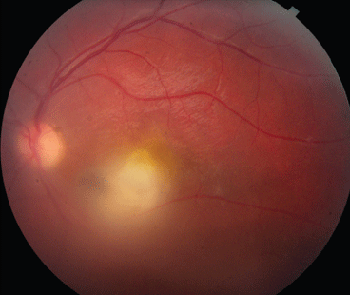Uveitis

Uveitis is a broad category of diseases that involve inflammation of the uvea, the middle pigmented layer or the eye that lies between the retina and the sclera. Uveitis is not a disease per say, but a collection of many types of diseases. There are both autoimmmune and infectious causes, and each disease requires its own evaluation, monitoring, and treatment.
Patients that have uveitis may have a history of or be more prone to other types of autoimmune conditions throughout the body.
How is uveitis treated:
Treatment varies depending on the specific disease. Infectious causes are often treated with systemic antibiotics or intravitreal injections of antibiotics. Autoimmune or inflammatory causes are treated most commonly with steroids (either as eye drops, injections in or around the eye, or as oral medication). Sometimes long term immunosuppression is required, and patients might need steroid sparring immunosuppression medications which might require monitoring with a rheumatologist.
Specific uveitis conditions that we treat include (but not limited to):
Sarcoidosis
Viral retinitis
Toxoplasmosis
Ocular histoplasmosis
Tuberculosis
Ocular syphilis
HLA-B27 Related Diseases
Lyme Disease
Behcet's
Sympathetic Ophthalmia
Vogt-Koyanagi-Harada (VKH)
APMPPE
MEWDS
Birdshot Chorioretinopathy
Punctate Inner Choroiditis
Serpiginous Choroiditis
